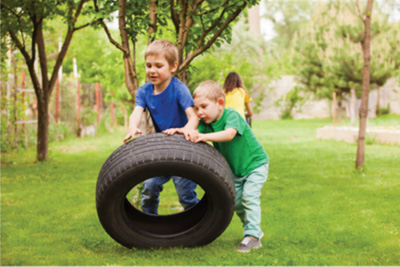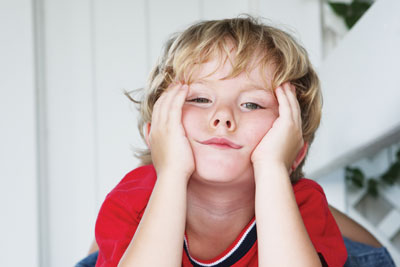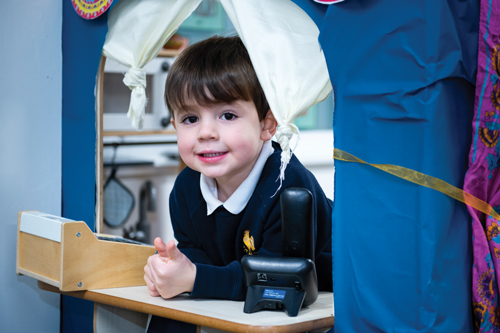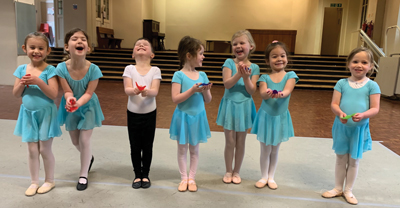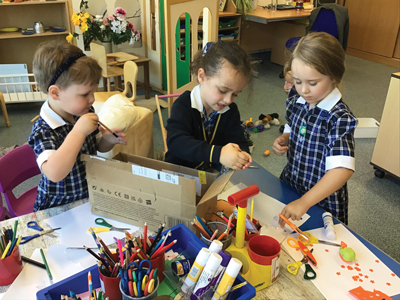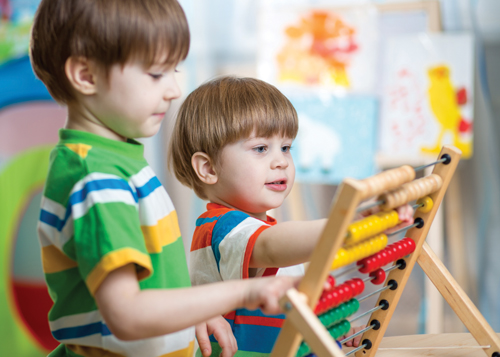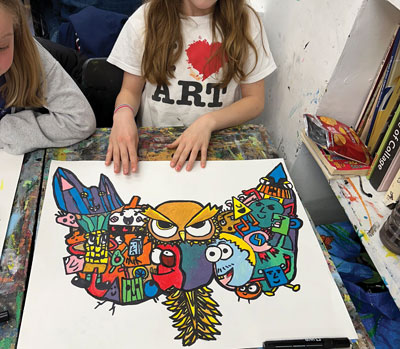
by Sebastian Dewing
Founder Artroom Brighton
Nurturing creativity beyond the classroom
Back at primary school, in the 1980s, I had a weekly art lesson in an art room, a pottery class in a pottery studio and a needlework lesson in a fabrics room. Whereas I appreciate, this was not necessarily on offer in every school, it certainly wasn’t radical.
Fast forward 40 years and the demotion of art from a core subject to a smattering of token options that children dip in and out of, is astounding. If my daughter is lucky enough to get an art lesson, it is usually in conjuction with a topic lesson – like lets draw ‘a Viking long boat’ or design a ‘save the rain forests’ poster. There is still value in this but it is rarely art for art’s sake. Our children are being disadvantaged by the requirements of national educational targets, which hugely favour ‘core’ subjects, meaning art is now undervalued in primary schools. It is the participation in art, rather than the ability and skill level of the child, that is fundamentally important here.
In a world of innovation, it couldn’t be a more crucial time to use art to empower our young people, as employers place a huge emphasis on creative thinking, in addition to personal skills such as confidence, effective decision-making and originality. Such skills are bolstered by studying the arts and being able to think outside of the box, innovate and be creative is something that seems lacking in many young people entering the workforce.
Sir Ken Robinson in his TED Talk, Do Schools Kill Creativity, said that: “Creativity is now as important in education as literacy – we don’t grow into creativity; we grow out of it. Or rather, we get educated out of it… Our education system has mined our minds in the way that we strip-mine the earth: for a particular commodity. And for the future, it won’t serve us. We have to rethink the fundamental principles on which we’re educating our children.”
The Digital, Culture, Media and Sport Committee (2019) said in their report Changing Lives: “We are deeply concerned by the evidence we received around the downgrading of arts subjects in schools, with all the consequent implications for children’s development, wellbeing, experiences, careers and, ultimately, life chances.”
While schools work really hard to deliver a broad curriculum, the time and resources available for creative subjects, such as art, are frequently limited or sidelined. Yet, for many children, art isn’t just a subject – it’s a language, an outlet and a way to connect with themselves and the world around them.
Art workshops can offer a space where that creative expression can truly flourish. Unlike the school environment, where outcomes and assessments can sometimes overshadow the process, workshops are structured around exploration and fun. They allow children to use new materials, think visually and build confidence in their own ideas – all in a relaxed and supportive setting.
During the long summer break, when routines shift and screen time can easily dominate, art workshops can provide children with meaningful, hands-on experiences. It’s not just about keeping them busy – it’s about giving them the tools and space to grow, create and have fun.
For parents looking to support their child’s artistic interests beyond the classroom, workshops can be an ideal stepping stone. They bridge the gap between what schools can offer and what children truly need to thrive as young creatives.
At Artroom Brighton, we truly and firmly believe that art has the power to transform and nurture the lives of young people – we’ve seen it happen many, many times.
In the current climate, it’s no wonder that more and more parents are choosing to send their children to our classes. Unlock YOUR child’s creative potential and book them in for a course at our studio. Visit www.arrtroombrighton

